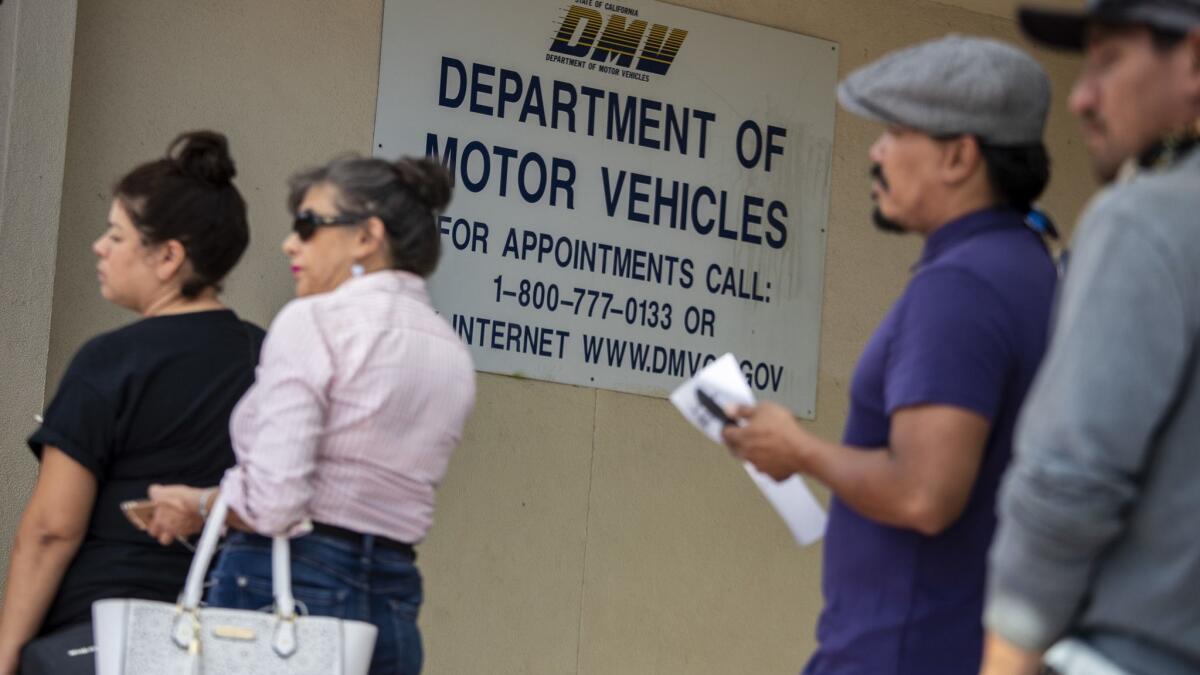Column: California needs an ombudsman to weigh the release of government documents, lawmaker says

- Share via
Reporting from Sacramento — For more than a half-century, California officials have been required to provide public access to their records unless there’s a good reason to do otherwise. But it’s the process that allows some records to be kept secret that one state legislator says is long overdue for a change.
A proposal soon to be introduced in the Legislature would create the job of public records ombudsman — a transparency referee, of sorts, to determine whether the government was justified to keep things secret.
“We should err on the side of transparency,” Assemblyman Vince Fong (R-Bakersfield) said. “We just want to make sure there’s a process for review.”
At issue is what happens when a government agency refuses a request filed under the California Public Records Act. The person who filed the request is generally left only with the option of filing a lawsuit, a time-consuming and expensive route that very few citizens can take.
Fong is one of the Legislature’s most ardent critics of recent problems at the California Department of Motor Vehicles, beset with complaints about long customer lines and concerns about how it has handled the transition to creating driver’s licenses compliant with the federal Real ID law. Since last spring, the DMV has also struggled with the implementation of California’s new voter registration law, admitting to errors that included wrong political party choices and mistakenly registering some legal residents who aren’t U.S. citizens.
Last fall, The Times filed requests for DMV records pertaining to the rollout of the state’s new “motor voter” program to better understand how those mistakes were made. Several weeks later, officials responded that some of the documents — specifically, memos by Jean Shiomoto, the former DMV director — would not be released because they “reflect the internal deliberations” of the department.
So who made the final DMV decision? It was Shiomoto herself, unilaterally shielding her own correspondence from the public.
“We don’t have a process where an independent review can take place,” Fong said last week of such refusals to release documents. “How do you hold a state government accountable if you don’t know what’s happening?”
Fong’s proposal will be a work in progress and would ultimately need significant buy-in from a variety of stakeholders, including Gov. Gavin Newsom, legislative Democrats and open-government advocates. His idea is to create the ombudsman position within the California Bureau of State Audits, and to at least give that person as much power as inspectors general in other government agencies have.
The proposal will have to address some key questions. The 1968 state law that set rules for public access to government documents covers local officials, too. (It does not, though, extend to the California Legislature.) Should denials there also be subject to review? Nor is it clear whether Fong’s proposal will have an enforcement mechanism in the event the review process concludes the state agency was wrong. Who, if anyone other than a judge, could compel officials to hand over documents?
Workload could be a factor, too. Last month, the California Department of Justice provided to The Times a sampling of how many record requests it received in 2018. In January of last year, there were more than 200 requests with scores more in the months that followed. Most were for records the department said it didn’t have. But for each denied records request, under Fong’s plan, a citizen could ask a second opinion.
Still, the intent of the legislative effort is clear. Millions of lives and billions of taxpayer dollars depend on decisions made by California government agencies. If those same officials get to decide what’s revealed and what’s not, perhaps an independent set of eyes should take a second look.
Follow @johnmyers on Twitter, sign up for our daily Essential Politics newsletter and listen to the weekly California Politics Podcast
More to Read
Get the L.A. Times Politics newsletter
Deeply reported insights into legislation, politics and policy from Sacramento, Washington and beyond. In your inbox twice per week.
You may occasionally receive promotional content from the Los Angeles Times.











